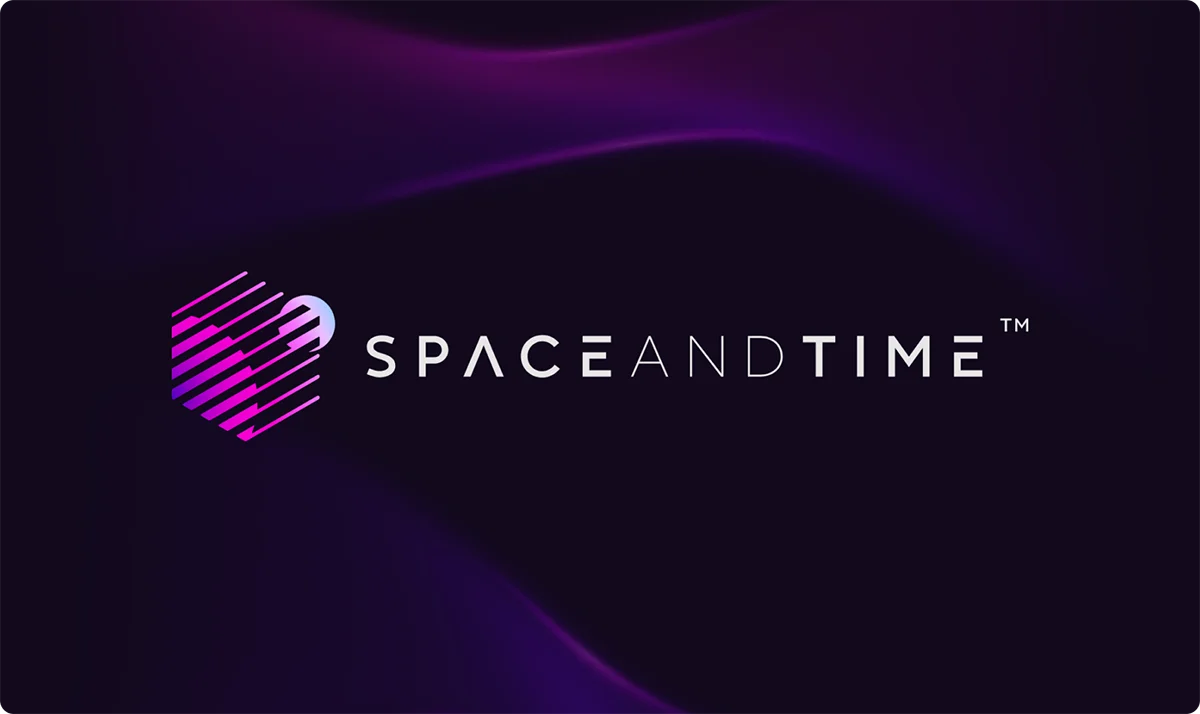Space and Time (SxT) has completed the launch of its mainnet and hailed the event as an opportunity to supercharge dapp development. While the project was already doing plenty of business both in enterprise and web3, its mainnet launch will allow it to kick things up a notch. SxT already has a clear idea of the sort of use cases its zero-knowledge proofs will be supporting. Not surprisingly, AI is near the top of that list.
Rich Data and Cryptographic Proofs
One of the challenges with complex projects, particularly those working with cryptographic proofs – in this case of the zero-knowledge variety – is conveying to the average web3 user the significance of it all. Thankfully for Space and Time, its target audience is developers rather than end users, which helps significantly: it’s in the middleware game. It also helps that SxT has done a very good job of explaining how its core products slot together and why they’re such a big deal.
As the project’s Scott Dykstra explains, “Prior to Space and Time, onchain applications had no way to query basic user data from a database of blockchain activity without introducing security risks and tampering. In addition, enterprises had no way to securely connect their cloud databases with smart contracts.” With the launch of SxT’s mainnet, Dykstra is confident that the quality of decentralized applications is about to level up now they can access more data with greater reliability from on- and off-chain sources.
Petabyte-Scale Storage
Space and Time has a lot of moving parts to it, centered around its Proof of SQL solution which serves as a sub-second ZK coprocessor. Among its bold promises is the ability to deliver “petabyte-scale” blockchain storage though an elastic scaling solution. This effectively means that dapps will never run out of storage, even when addressing memory-intensive use cases.
But this is about more than simply multiplying web3’s storage capacity: Space and Time is equally interested in ensuring that this data can be accessed in a private manner. This is particularly vital for enterprises, which struggle to reconcile the transparency of public blockchains with the need to keep sensitive financial data to themselves. With Space and Time, this data can be securely stored off-chain and then a ZK proof transmitted onchain.
Microsoft and Chainlink Rally Round
While the quality of Space and Time’s tech is its primary selling point, it’s also got some quality backers behind it. Most famously, Microsoft has invested in the web3 startup, while Chainlink has also forged close ties, its Co-Founder Sergey Nazarov noting how, “Chainlink provides the connective tissue for data to move securely across systems, and Space and Time brings powerful new compute capabilities that complement that vision.”
This compute is going to be dialed up in the coming years as AI agents take over and artificial intelligence permeates everything. Creating dapps that consume vast amounts of computational resources without relying on centralized sources is difficult at present due to the inherent limitations of Layer 1 blockchains. Ethereum’s struggling to scale just to match the demands of ordinary DeFi usage; how’s it meant to handle the exponentially larger burden placed by AI-intensive dapps?
It’s here that Space and Time is likely to gain ground, positioning itself as the scaling solution aspiring AI dapp developers can rely on. As the project’s website summarizes, “Smart contracts can use Space and Time to ask data-driven questions about activity on their own chain, other chains, or offchain sources and get back a ZK-proven answer next block.” Apply that formula to an emerging generation of AI-powered applications and it’s easy to see why Microsoft and Chainlink are so bullish.




